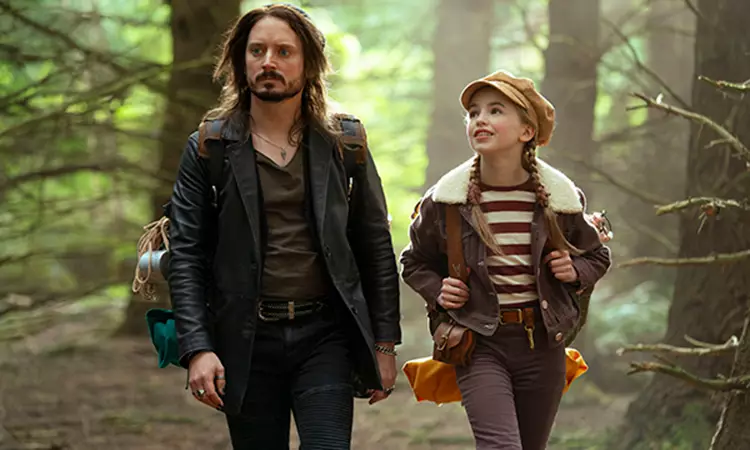The cinematic landscape is once again enriched by Ant Timpson’s latest feature, “Bookworm,” which made its world premiere at Fantasia 2024 on July 18. With its combination of humor, adventure, and emotional resonance, the film promises to engage audiences of all ages. At the heart of the narrative is a dynamic relationship between an 11-year-old girl and her estranged father, explored against the backdrop of New Zealand’s breathtaking wilderness. In essence, “Bookworm” is not merely an adventure; it is a tale of bonding, self-discovery, and the unpredictability of life.
Mildred: A Bookish Protagonist
Mildred, played by the talented Nell Fisher, is the quintessential bookworm who defines her world through literature. Early in the film, she proudly introduces herself as a “card-carrying bookworm,” instantly signaling the audience to her intellectual prowess, yet also highlighting her naivety. Her eagerness for an adventure is fueled by her love for books and stories, as she dreams of capturing the elusive Canterbury panther. However, beneath this enthusiasm lies a stark, unprepared reality that she faces when an unexpected accident leaves her mother, Zo, portrayed by Morgana O’Reilly, incapacitated. This shocking turn of events thrusts Mildred into a world where her theoretical knowledge meets the harshness of reality.
Enter Strawn Wise, played by Elijah Wood, a character fraught with his own baggage. As Mildred’s long-lost father, Strawn embodies a poignant blend of reluctance and desperation to connect with the child he never knew. His comedic ineptitude as a father—contrasting sharply with Mildred’s vast bookish knowledge—paradoxically serves to create a rich ground for growth. Strawn’s character transitions from a failed illusionist to an inexperienced father figure navigating the challenges of camping. This peculiar duo, while lacking practical skills, embarks on an adventure that brings them face-to-face with both metaphorical and literal predators, pushing their limits and forcing them to confront their fears.
The visual storytelling employs a significant shift in aspect ratio, moving from the confined environment of Mildred’s home to the expansive vistas of New Zealand’s wilderness. This change is symbolic of Mildred’s growth—from the confines of her bookish life to the vast possibilities of the world she is about to explore. The film’s cinematography skillfully mirrors this character evolution, drawing the audience into the stunning landscape while contrasting it with the intimate journey of a father and daughter growing closer.
Notably, “Bookworm” is positioned as a foil to Timpson’s previous work, “Come to Daddy,” allowing audiences to appreciate the maturation of themes surrounding familial relationships. The darker undertones of the former film give way to a lighter, more adventurous feel in “Bookworm,” making it more accessible to younger viewers.
While the narrative echoes familiar tropes, such as an adventure to capture a mythical creature—akin to films like Taika Waititi’s “Hunt for the Wilderpeople”—”Bookworm” establishes its own identity through character depth and emotional poignancy. The film’s inherent charm lies in the interactions between Mildred and Strawn, whose comedic banter and budding camaraderie serve as a vehicle for reconciliation. Ultimately, their distinctive journeys intertwine, illustrating that magic can emerge from the most unexpected of partnerships.
As the characters evolve, the story remains grounded in themes of love, acceptance, and personal growth. The film carries an essential message: that bonding can arise from the unlikeliest circumstances. Viewers are left with a sense of hope, buoyed by the knowledge that even the most fractured relationships can mend through shared experiences and genuine effort. “Bookworm” is more than just a film about an outdoor adventure; it is a heartfelt exploration of life’s unpredictability, securing its place as a definitive family-friendly offering in contemporary cinema.

